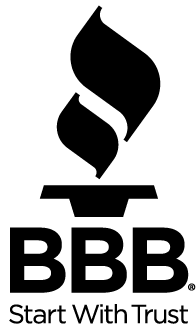Telemarketing scams have in some cases become more profitable than drug trafficking. Scammers have made millions of dollars by perpetrating over-the-phone schemes.
Scammers use technology to disguise their locations, telling victims they are calling from federal or state agencies and providing phone numbers with local and United States area codes. The con artists hold out the promise of a sweepstakes, lottery or other winnings but ask for taxes and other fees up front.
Fraudulent telemarketers use five basic techniques:
Scarcity: The senior has been identified as the grand prize winner, but if the senior doesn’t accept the prize immediately (and pay that “handling charge”) the runner-up will get the prize instead.
Hype: The telemarketer screams and hollers about how excited he is that the senior has won.
Authority: The telemarketer passes the phone to his “boss,” so his target will know the offer is “legitimate.”
Reciprocity: The telemarketer explains that she won’t receive her commission unless the senior accepts the prize and pays the handling fee. When the senior protests that he doesn’t have enough money to pay the fee, the scammer asks how much he can afford, and says she’ll accept that smaller amount, just because she’s so happy the senior has won the prize.
Phantom Fixation: The prize is too good to pass up, and the targeted senior becomes fixated on it.
Con artists will change from one persuasion tactic to the next, if necessary. Hawai‘i’s Better Business Bureau (BBB) offers a few tips to help seniors deal with prize telemarketers.
Tip #1: Never give personal information, such as bank account or social security numbers, to anyone over the phone, unless you initiated the call and know you’ve reached the right agency.
Comeback: “I don’t give out personal information over the phone. I’ll contact the company directly.”
Tip #2: Don’t believe it if the caller tells you to send money to cover the “handling charge” or to pay taxes.
Comeback: “I shouldn’t have to pay for something that’s free.”
Tip #3: “Limited time offers” shouldn’t require you to make a decision on the spot.
Comeback: “I’ll think about it and call you back. What’s your number?”
Tip #4: Be suspicious of anyone who tells you not to discuss the offer with someone else.
Comeback: “I’ll discuss it with my family and friends and get back to you.”
Tip #5: If you don’t understand all the verbal details, ask for it in writing.
Comeback: “I can’t make a decision until I receive written information.”
Practice these comebacks with your friends and family. Also, tell telemarketers to take your name off their call list. If the telemarketers don’t, they’re breaking the law. Sign up for the National Do Not Call Registry at www.donotcall.gov to stop telemarketers from calling.



Leave a Reply